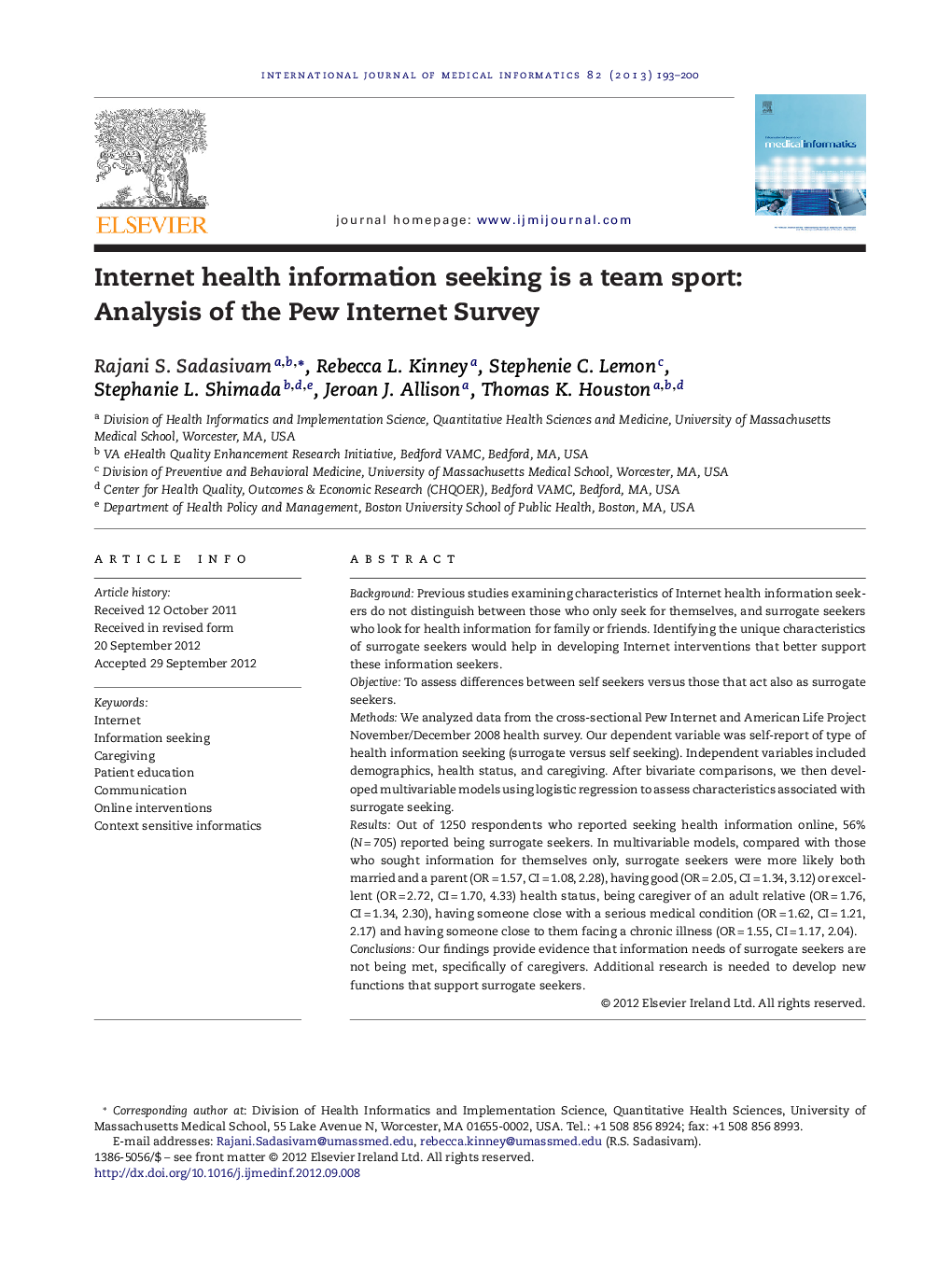| Article ID | Journal | Published Year | Pages | File Type |
|---|---|---|---|---|
| 516884 | International Journal of Medical Informatics | 2013 | 8 Pages |
BackgroundPrevious studies examining characteristics of Internet health information seekers do not distinguish between those who only seek for themselves, and surrogate seekers who look for health information for family or friends. Identifying the unique characteristics of surrogate seekers would help in developing Internet interventions that better support these information seekers.ObjectiveTo assess differences between self seekers versus those that act also as surrogate seekers.MethodsWe analyzed data from the cross-sectional Pew Internet and American Life Project November/December 2008 health survey. Our dependent variable was self-report of type of health information seeking (surrogate versus self seeking). Independent variables included demographics, health status, and caregiving. After bivariate comparisons, we then developed multivariable models using logistic regression to assess characteristics associated with surrogate seeking.ResultsOut of 1250 respondents who reported seeking health information online, 56% (N = 705) reported being surrogate seekers. In multivariable models, compared with those who sought information for themselves only, surrogate seekers were more likely both married and a parent (OR = 1.57, CI = 1.08, 2.28), having good (OR = 2.05, CI = 1.34, 3.12) or excellent (OR = 2.72, CI = 1.70, 4.33) health status, being caregiver of an adult relative (OR = 1.76, CI = 1.34, 2.30), having someone close with a serious medical condition (OR = 1.62, CI = 1.21, 2.17) and having someone close to them facing a chronic illness (OR = 1.55, CI = 1.17, 2.04).ConclusionsOur findings provide evidence that information needs of surrogate seekers are not being met, specifically of caregivers. Additional research is needed to develop new functions that support surrogate seekers.
► The characteristics of those individuals who seek health information online for themselves differ from those who seek for themselves and others (surrogate seekers). ► The markers of caregiving are positively associated with surrogate seeking. ► Self- and surrogate-seekers differ in their patterns of online health information seeking. ► Findings provide a foundation for intervention research in the realm of computer tailored health interventions for caregivers.
